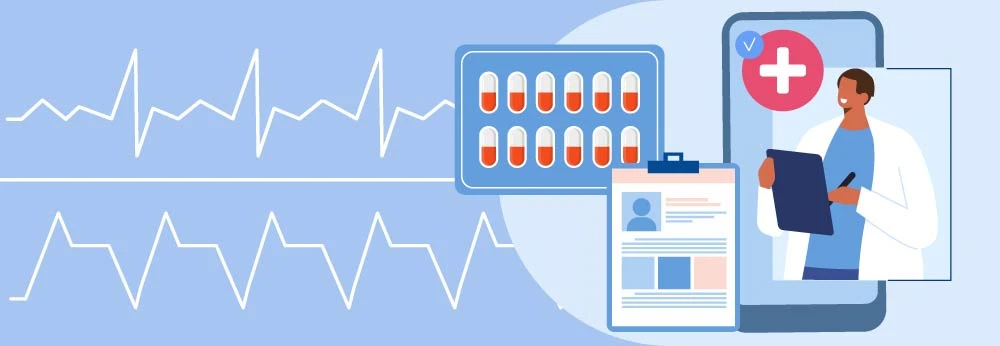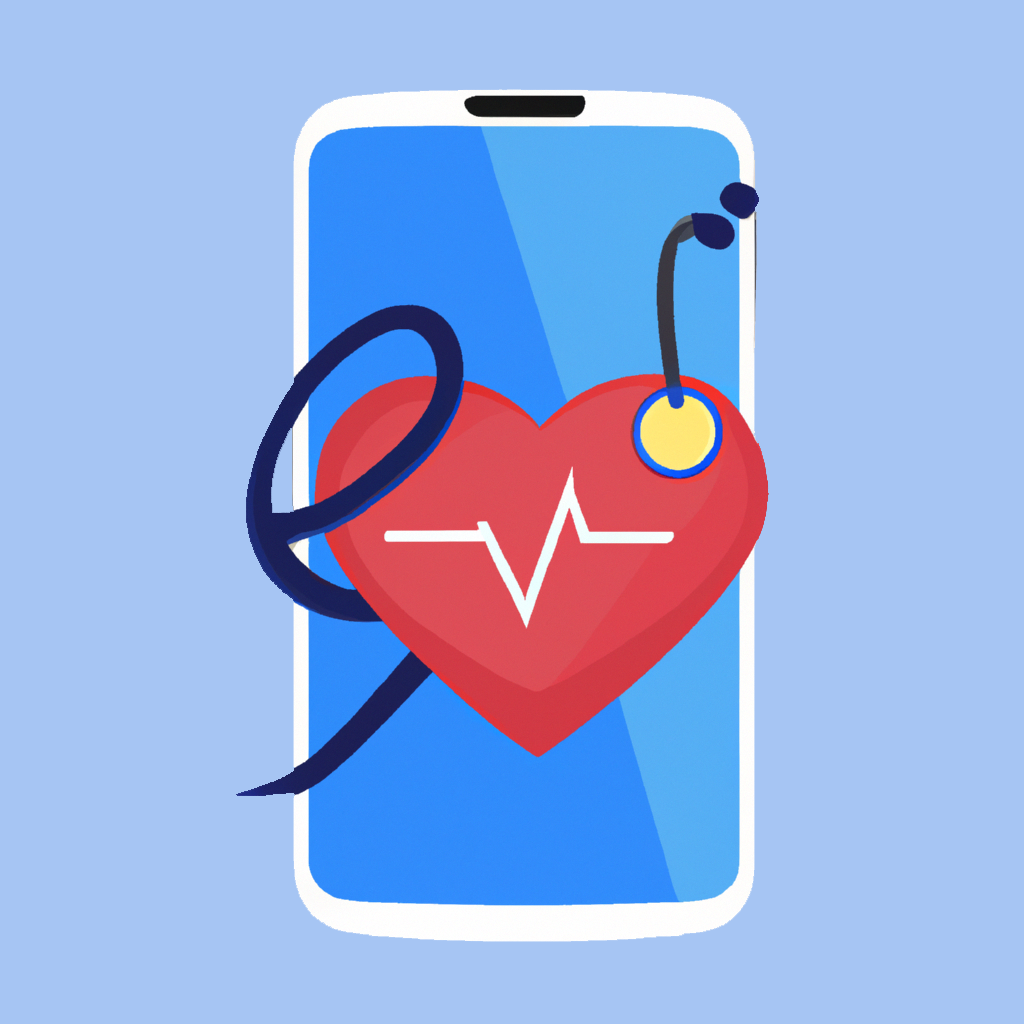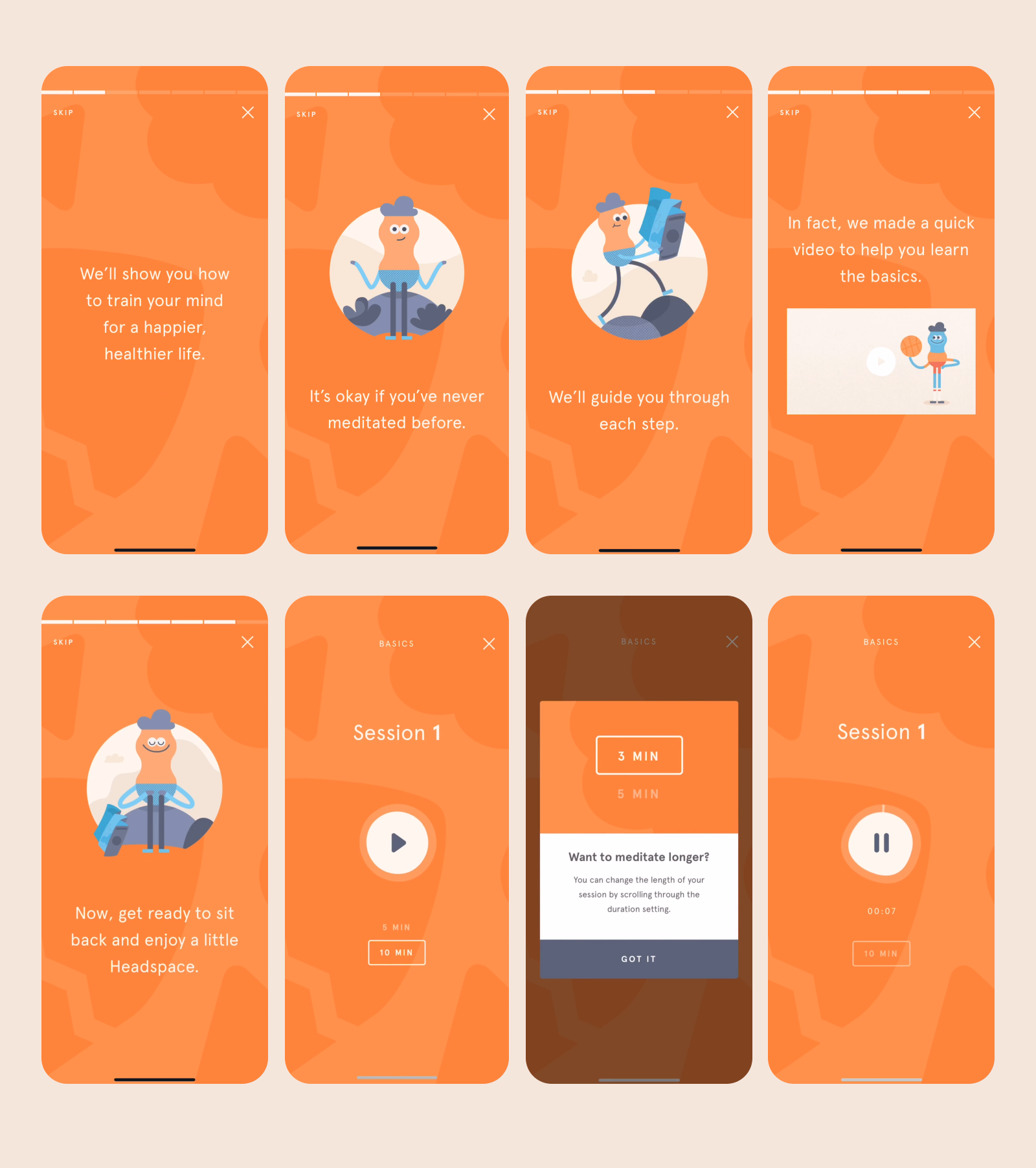.jpg?2026-02-17T14:47:30.411Z)
When Leroy Merlin ran out of hands, InAppStory became the extra ones

Mobile App Stories in Healthcare: Enhancing Patient Experience and Engagement
Mark Polskii
Author @ InAppStory
The rise of mobile technology has revolutionized the healthcare industry, providing a new means of delivering personalized care and enhancing patient engagement. Mobile apps have become an indispensable tools for healthcare providers and patients, enabling them to monitor and manage their health on the go. With the growing adoption of mobile apps in healthcare, there has been a surge in stories highlighting their impact on improving patient experience and engagement.
Mobile apps have the potential to address a range of healthcare challenges, from improving patient adherence to medication and treatment plans to enabling remote consultations and enhancing disease management. They have proven to be especially effective in addressing chronic conditions such as diabetes, asthma, and heart disease, by providing patients with personalized care plans and access to real-time health data.
In this article, we explore the impact of mobile app stories in healthcare, focusing on how they enhance patient experience and engagement. We will examine how mobile apps are used to improve health outcomes and patient satisfaction and discuss the role of patient-centered design in creating successful mobile health apps.
The role of mobile app Stories in healthcare
Mobile app Stories are becoming an increasingly popular way for healthcare providers to engage with their patients and improve the patient experience. Stories have the ability to capture and hold a person's attention, making them a powerful tool in healthcare where patient engagement is crucial for positive health outcomes. In this section, we will explore the benefits of mobile app stories for healthcare providers, how they improve patient engagement, and ways they can enhance the overall patient experience.
Benefits of mobile app Stories for healthcare providers
One of the main benefits of mobile app stories for healthcare providers is their ability to communicate complex medical information in a way that is easily digestible for patients. Through storytelling, providers can explain medical conditions, treatment options, and procedures in a way that patients can understand, empowering them to make informed decisions about their health. Additionally, mobile app stories can help providers build trust with their patients by creating a more personal connection between the patient and their healthcare team.
Another benefit of mobile app stories is their potential to improve patient adherence to treatment plans. By using storytelling to explain the benefits and potential outcomes of a specific treatment, patients may be more likely to follow through with the plan, leading to better health outcomes. Mobile app stories can also serve as a reminder for patients to take medications or attend appointments, leading to improved patient compliance and ultimately, better health outcomes.
How mobile app Stories improve patient engagement

Patient engagement is crucial for effective healthcare, and mobile app stories have the ability to increase patient engagement in several ways. Firstly, stories can help patients feel more involved in their own care by giving them a better understanding of their medical condition and treatment options. This can lead to increased patient confidence and a greater sense of control over their health.
Secondly, mobile app stories can help patients feel more connected to their healthcare providers by creating a more personal and relatable experience. By using real-life patient stories, healthcare providers can help patients feel less alone in their journey, and more supported by their healthcare team.
Examples of mobile app Stories in healthcare apps
Headspace

Headspace is a popular meditation mobile app that provides users with guided meditation and mindfulness exercises. The app uses mobile app stories to deliver this content in an engaging and interactive way, making it easier for users to incorporate mindfulness practices into their daily routines.
One of the key ways that Headspace uses mobile app stories is through its "Take 10" program. This program offers users a 10-day guided meditation course that teaches them the basics of mindfulness meditation. Each day, users are guided through a short meditation session, accompanied by calming visuals and soothing audio content.
Headspace also uses mobile app stories to provide users with a variety of meditation exercises that focus on specific themes or topics. For example, users can select guided meditation sessions that focus on stress reduction, productivity, or creativity. The app uses storytelling techniques to guide users through these sessions, helping them to visualize and connect with the meditation exercise more deeply.
Calm
Calm is a popular mobile app that provides users with guided meditation and relaxation content. The app uses mobile app stories to deliver this content in an engaging and interactive way. The mobile app stories feature narrated audio content, calming visuals, and interactive animations to help users relax and reduce stress.
For example, one of Calm's popular mobile app stories is called "Sleep Stories." This feature offers a selection of narrated stories designed to help users fall asleep more easily. The stories are designed to be calming and relaxing, and they often feature soothing sounds and calming music to help users unwind.
Another mobile app story offered by Calm is called "Daily Calm." This feature provides users with a new guided meditation session each day, designed to help users reduce stress and anxiety. The sessions are short and easy to follow, making them accessible to users who may not have a lot of experience with meditation.
Moodfit
Moodfit is a mental health mobile app that provides users with a variety of tools and resources to help manage their mental health and well-being. The app uses mobile app stories to deliver this content in an engaging and interactive way, making it easier for users to connect with and apply the content to their daily lives.
One of the ways that Moodfit uses mobile app stories is through its "Journey" feature. This feature offers users a series of guided exercises and meditations that are designed to help them work through specific mental health challenges, such as anxiety or depression. The mobile app stories provide users with a sense of narrative and structure, helping them to stay engaged and motivated throughout the journey.
Challenges and solutions for implementing mobile app Stories in healthcare
Mobile app stories have emerged as a valuable tool for enhancing patient experience and engagement in healthcare. However, their implementation comes with some challenges that need to be addressed for successful deployment. Here are some of the major challenges and solutions for implementing mobile app stories in healthcare.
Privacy and security concerns
Privacy and security concerns are some of the most significant challenges facing the implementation of mobile app stories in healthcare. Health information is highly sensitive, and the use of mobile apps to collect and store this information can be a significant privacy risk. Patients need to trust that their personal health information is secure and protected. Healthcare providers must ensure that the mobile app Stories they deploy are compliant with relevant privacy and security regulations, such as the Health Insurance Portability and Accountability Act (HIPAA). Moreover, healthcare providers can use encryption, password protection, and two-factor authentication to ensure that patient information is safe and secure.
Technical barriers and limitations
Another challenge for implementing mobile app stories in healthcare is technical barriers and limitations. Developing mobile app stories that are effective, efficient, and user-friendly requires a significant amount of technical expertise, which may not be available in many healthcare organizations. Additionally, the cost of developing and maintaining a mobile app can be high, making it difficult for small healthcare organizations to invest in this technology. One solution for this challenge is to partner with mobile app development companies or utilize pre-built platforms that specialize in healthcare to reduce development costs and speed up the deployment process.
Regulatory compliance
Healthcare organizations must comply with various regulatory requirements, such as HIPAA and FDA regulations when developing and implementing mobile app stories in healthcare. These regulations can impact the design, development, and deployment of healthcare applications and can make it challenging to develop and implement new features.
How can you implement similar Stories in your healthcare app?
InAppStory is a powerful content creation tool that can help healthcare providers and medical organizations enhance their patient engagement and experience. With its comprehensive suite of features, InAppStory allows healthcare professionals to create immersive and interactive mobile app Stories that can educate, inform, and entertain patients.
One of the key benefits of InAppStory is its ability to create onboarding screens that can provide short, impactful content that is easy for patients to digest. These screens can be used to introduce patients to new features and functionalities of a healthcare app, as well as to provide them with relevant educational material about their condition or treatment plan.
In addition to onboarding screens, InAppStory also offers app Stories, which can be used to share valuable and informative content about medical organizations and healthcare providers. These Stories can help build trust and credibility with patients, while also providing them with a more personalized and engaging healthcare experience.
Another exciting feature of InAppStory is its gamification capabilities. By incorporating interactive games and quizzes into healthcare apps, healthcare providers can increase patient engagement and stickiness rates, leading to better health outcomes.
Overall, InAppStory is a versatile and powerful tool that can help healthcare providers and medical organizations enhance their patient engagement and experience through the use of mobile app Stories. With its comprehensive suite of features, InAppStory is a must-have for any healthcare app looking to improve patient outcomes and drive engagement.
Interested in how mobile stories can enhance engagement for special campaigns? Read our article on Valentine’s Day mobile stories for creative ideas.

